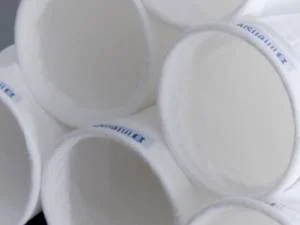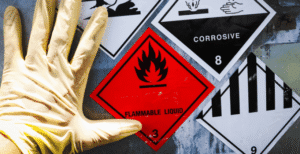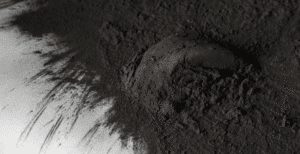Understanding Scrubbers in Air Pollution Control
Scrubbers are devices that help clean the air by removing harmful pollutants from industrial exhaust. They work by using a liquid or solid material to capture these pollutants. When dirty air passes through a scrubber, the pollutants mix with the cleaning solution. This process helps to reduce harmful substances before the air is released back into the environment. Scrubbers play a vital role in keeping the air cleaner and safer for everyone.
- Scrubbers are used in power plants to reduce sulfur dioxide emissions.
- They are common in chemical manufacturing to control volatile organic compounds.
- Scrubbers serve in waste incineration to lower harmful particles in the smoke.
- They help in food processing to remove odors and improve air quality.
- Scrubbers are found in oil refineries to manage gases released during production.
Types of Scrubbers: Wet vs. Dry
Scrubbers are devices that clean gases by removing harmful particles. There are two main types: wet scrubbers and dry scrubbers.
- Wet Scrubbers: Wet scrubbers use liquid to capture particles. They spray water or other liquids into the gas stream. The liquid collects the harmful particles and then separates them. Wet scrubbers are good at removing gases like sulfur dioxide. They work well in industries like power plants and chemical manufacturing.
- Dry Scrubbers: Dry scrubbers use a dry material to remove particles. They use substances like lime or activated carbon. The gas passes through the dry material, which traps the harmful particles. Dry scrubbers are better for removing acid gases. They are often used in industries like cement and metal production.
Wet scrubbers are effective for certain gases, while dry scrubbers are suitable for others. Each type has its own benefits and best uses based on the needs of the industry.
Wet Scrubbers: Mechanism and Applications
Wet scrubbers play an important role in cleaning air. They work by using liquid to remove harmful particles and gases from the air. The main components of wet scrubbers include a scrubber vessel, liquid, and a fan or pump.
The operation of wet scrubbers starts with the fan or pump. It pulls in air that contains dust, smoke, or gas. This air then enters the scrubber vessel. Inside the vessel, the liquid sprays into the air. The liquid can be water or a special chemical solution. As the air mixes with the liquid, particles stick to the liquid. This process removes them from the air. Finally, the cleaned air leaves the scrubber and goes into the environment.
Wet scrubbers are very effective. They can remove a large amount of particulate matter and gases. Their effectiveness depends on the type of liquid used and the design of the system.
Here are some common applications of wet scrubbers:
| Application | Description |
| Power Plants | They remove pollutants from emissions in energy production. |
| Chemical Plants | They capture harmful gases released during chemical reactions. |
| Waste Incineration | They clean smoke and gases from burning waste. |
| Metal Processing | They filter out dust and fumes created in metal work. |
| Food Processing | They help maintain air quality by removing odors and particles. |
Dry Scrubbers: Mechanism and Applications
Dry scrubbers are devices that clean gases by removing pollutants. They use a chemical process to capture harmful substances. The process starts with dirty gas entering the scrubber. Inside, the gas passes through a bed of dry chemicals. These chemicals react with the pollutants, trapping them. As the gas moves through, it becomes cleaner.
The main components of dry scrubbers include:
- Inlet Duct: This part brings the dirty gas into the scrubber.
- Reactor Chamber: The gas flows through this chamber where the dry chemicals are located.
- Dry Chemical Agents: These are the substances that react with pollutants. Common agents include lime or sodium bicarbonate.
- Outlet Duct: After cleaning, the cleaner gas exits through this duct.
Dry scrubbers are effective at removing specific pollutants like sulfur dioxide (SO2) and hydrogen chloride (HCl). They work by using a chemical reaction that changes these harmful gases into solid or less harmful forms that can be removed easily.
Some suitable applications of dry scrubbers include:
- Power plants that burn fossil fuels
- Cement manufacturing
- Chemical production facilities
- Waste incineration
- Oil refining
Dry scrubbers play an important role in reducing air pollution. They help keep the air cleaner and safer for everyone.
Choosing the Right Scrubber for Your Industry
Choosing the right scrubber for your industry is important. A scrubber helps remove harmful pollutants from the air or water. When selecting a scrubber, there are several factors to consider.
- Pollutant Type: Different scrubbers work better for different pollutants. It’s vital to know what type of pollutants your industry produces. Some scrubbers target gases, while others handle liquids or solids.
- Regulatory Requirements: Many industries must follow rules about pollution. These rules can vary by location. It’s crucial to understand the regulations in your area to ensure your scrubber meets these standards.
- Operational Costs: Every scrubber has costs for running and maintaining it. It’s essential to consider these costs over time. A scrubber that is cheaper to buy may cost more to run, so looking at the bigger picture is necessary.
- Space Availability: The size of your facility matters. Some scrubbers need more space than others. Make sure to measure your available area to find a scrubber that fits well.
- Efficiency: The efficiency of a scrubber shows how well it works. A more efficient scrubber removes more pollutants. This can lead to better air or water quality and may save money in the long run.
- Technology: Some scrubbers use advanced technology. These can be more effective but may also come with higher costs. It’s important to weigh the benefits against the price.
- Maintenance Needs: All scrubbers need maintenance to keep running well. Some require more upkeep than others. Consider how much time and money you have for maintenance.
- Supplier Support: A good supplier can help with installation and ongoing support. Choosing a supplier with a good reputation can make a big difference in how well your scrubber works.
By thinking about these factors, industries can choose the right scrubber. This choice can improve air or water quality and help meet legal requirements.
Environmental and Health Benefits of Scrubbers
Scrubbers are important tools that help clean air and protect health. They work by removing harmful substances from the air before it goes out into the environment. Here are some environmental and health benefits of using scrubbers:
- Improved Air Quality: Scrubbers clean the air by taking out pollutants. This helps everyone breathe cleaner air. Good air quality can lower the risk of health problems like asthma and allergies.
- Reduced Emissions: Scrubbers cut down on harmful gases that factories and power plants release. This helps to keep the air cleaner and reduces the overall pollution in the environment.
- Compliance with Regulations: Many countries have rules about how much pollution companies can produce. Scrubbers help companies follow these rules. By using scrubbers, companies can avoid fines and help protect the environment.
- Healthier Communities: When scrubbers remove pollutants, they create healthier living spaces. This means fewer health problems for people living nearby.
- Protection of Ecosystems: By reducing air pollution, scrubbers help protect plants and animals. Clean air is essential for the survival of many species and keeps ecosystems balanced.
Using scrubbers brings many benefits to both the environment and public health. They play a vital role in creating a cleaner and healthier world.
Conclusion
Choosing the right scrubber is very important for controlling air pollution. The right scrubber can help clean the air and make it safer for everyone. It can reduce harmful particles and gases from industries. This helps keep the environment clean and protects health.
Intensiv Filter Himenviro is a top provider of industrial filtration solutions. They offer advanced technology to help businesses manage air quality. Their products are designed to meet various needs and help in effective air pollution control.
People should assess their air pollution control needs. They should consult with reputable manufacturers like Intensiv Filter Himenviro. This can lead to better choices and cleaner air for all.



